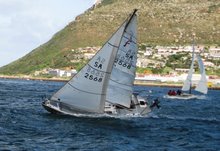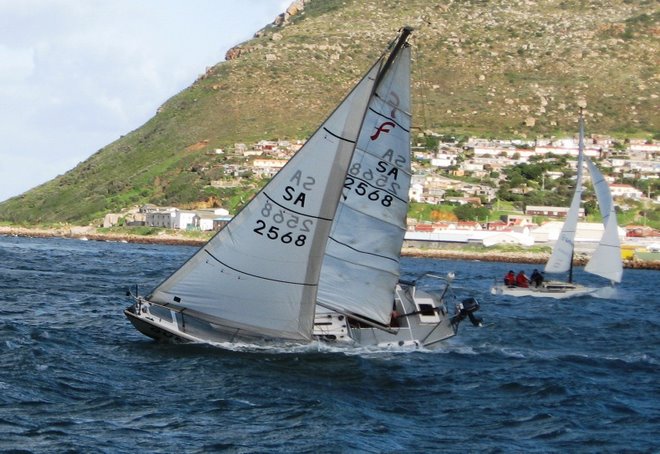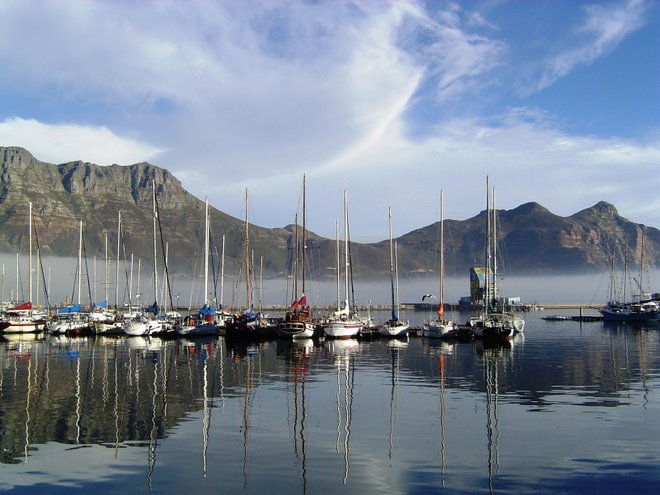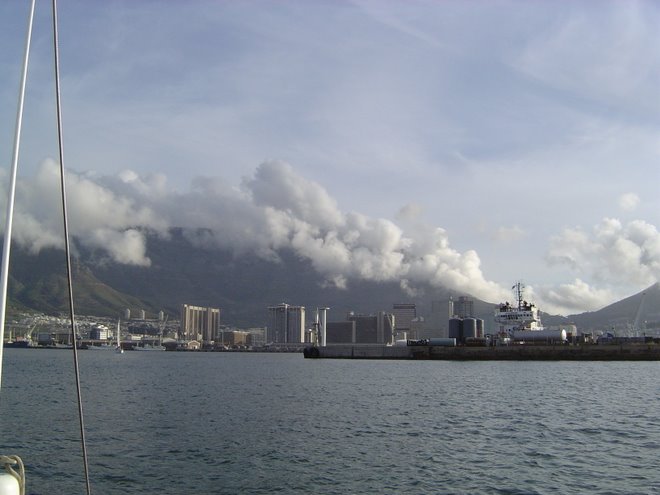In my view, the adventure of sailing is primarily all about taking risks, managing them and overcoming them. Just like other forms of adventure - eg mountaineering, flying etc. Its a deep-seated element of the human psyche. As much as people are interested in adventure - so they are naturally interested in techniques that enable this - i.e. safety - managing the risks, and developing the skills. Talk to any old salt at the pub and inevitably the conversation turns to the subject of how to survive a storm. About sea-anchors and drogues, good boats and bad etc etc. Sailors are naturally interested in safety, for obvious reasons. And in my own view, one can only enjoy a sailing trip if the basic elements of safety are catered for. I need to know I can contact help. I need to know I can stay afloat, and reasonably warm. Etc. Otherwise I'd worry consistently.
I absolutely hate the safety bureaucrats. I just hate it that some people think it is their entitlement and right to legislate about how others should conduct their lives - as long as they don't place others at risk (that's completely different). For commercial and passenger vessels - safety legislation and compliance are not debatable in my view. But for the private yachtsmen it's a real nuisance - particlularly in South Africa which has gone seriously overboard with red tape, costs, and petty officials. Far far more than the UK, US or Europe. This irritates me beyond belief.
From a club perspective (I serve on the Hout Bay Yacht Club Committee) - enforcement of the legislated safety standards is critical. Club will be shut down if not obviously complying properly - as as happened in other cases. Much as we might hate it - its still a "Licence to Operate" issue. So I do champion the cause of safety and compliance. Hopefully in a proactive and supportive way - rather than a "bureaucratic way".
Now comes an interesting reflection:
You may have read my earlier posting about sailing from Cape town to Hout Bay a day or two after purchasing my first keelboat - Quest. No keelboat experience. No knowledge of the boat. No radio training etc etc etc. Rather stupid if I say so myself. Would the current regulations have stopped me doing something quite this crazy at the time? Undoubtedly. However, I would never have got sailing in the first place under the current regime of autocratic bureacrats. And right now I see the same thing happening all around - people are selling boats, or simply breaking the law by not complying with the current draconian regime. But could this effect - much as I hate it - potentially have saved my life? Yes it could have - as I would probably not have bothered to sail in the first place. But what kind of life is that?? Damn them again. To make the point from another angle - yachting is not statistically a high-risk sport. Ask the insurers. Ask the NSRI. Don't ask the government. Don't ask the bureaucrats.
There is a middle ground - education rather than legislation. As I mentioned - most yachtsmen are naturally interested in safety. And almost without exception (besides a few nerds) - they hate bureaucracy. So why don't we have a proactive form of yachting education - with safety as a key theme? In he UK, US and Europe yachting safety is driven by he theme of education rather than legislation. Skipers tickets are not compulsory (for private yachtsmen), but nice to have. Certificates of fitness are not compulsory. Do they have high accident levels? No. But South Africa, with its rampant lawlessness - thinks it prudent to have the most prescriptive regulations for yachtsmen of just about any country in the world? Who we kidding? This is a very small group (yachtsmen), with a good safety record. I will have to stop here in case I suffer a coronary. Damn them again and again.
But coming back to safety at sea - which I do care about - it is really useful for yachtsmen to share their views and learnings. I love to read about this. My learnings and views:
- Always have a sail ready to use at short notice. I have several times lost engine power leaving or entering harbour, and being able to sail on has saved me some considerable nuisance several times.
- The anchor is a useful thing for parking. It is also a brake. Once when recovering the pin-mark at the end of a race, I wrapped the mark line around my prop in 20 knots of wind, just to windward of the harbour wall. Anchor went down in a flash and again saved a grounding on the harbour wall, while I dealt with the rope and the prop etc.
- If conditions are very bad - climb into your wetsuit. You are more likely to die of hypothermia than drowning - in cold waters such as where I live. I could survive quite a while in a wetsuit, and maybe swim to shore.
- Clip-on when conditions are bad - especially when singlehanded. Losing the boat must be very embarrassing. A lifejacket with a built-in harness is a must. Find a way of keeping a handheld VHF on your person.
- Prepare things in advance so it all goes smoothly. Reef early.
- Maintain your boat. Obviously. But especially the electrics. You need a radio. You need a GPS. You need nav lights. Radar. Bilge pumps. Engine starter. Cabin lights.
- Navigate properly. However you know how to. I like a chartplotter and GPS. Old salts like paper charts and compasses and things. One way or another you need to know where you are - easily, and at all times.
- Buy the right boat. It should have a strong stability curve - AVS of 130deg plus is minimum in my view. Unsinkable boats also get my vote and I still don't really see why these are not more popular. A sealed mast is another great thing as they dramatically improve the AVS, and external halyards are far easier to maintain - (if a bit messy). Go easy on the high-up weight (radar sets, stainless steel structures, wind-chargers, solar panels etc). These are not factored into the predicted stability curve. Won't matter at all until the day you go turtle! And be sure the keel is solid and won't fall off. . .
- Be very careful with petrol and gas! Automatic fire extinguishers also a good thing, especially in engine room.
- Find a way to understand the weather. By old or new principles. Avoiding bad weather is more important than having to survive it . . . For coastal sailing I use a variety of weather and swell reports. For ocean sailing - get those GRIB files.
- Know the basics of first aid - and how to manage seasickness in the crew - laying down flat with head flat down brings quick relief as the ears stop confusing the brain.
- Read all you can about "series drogues".
Thats my list for now. I would love to hear your views and experiences!





